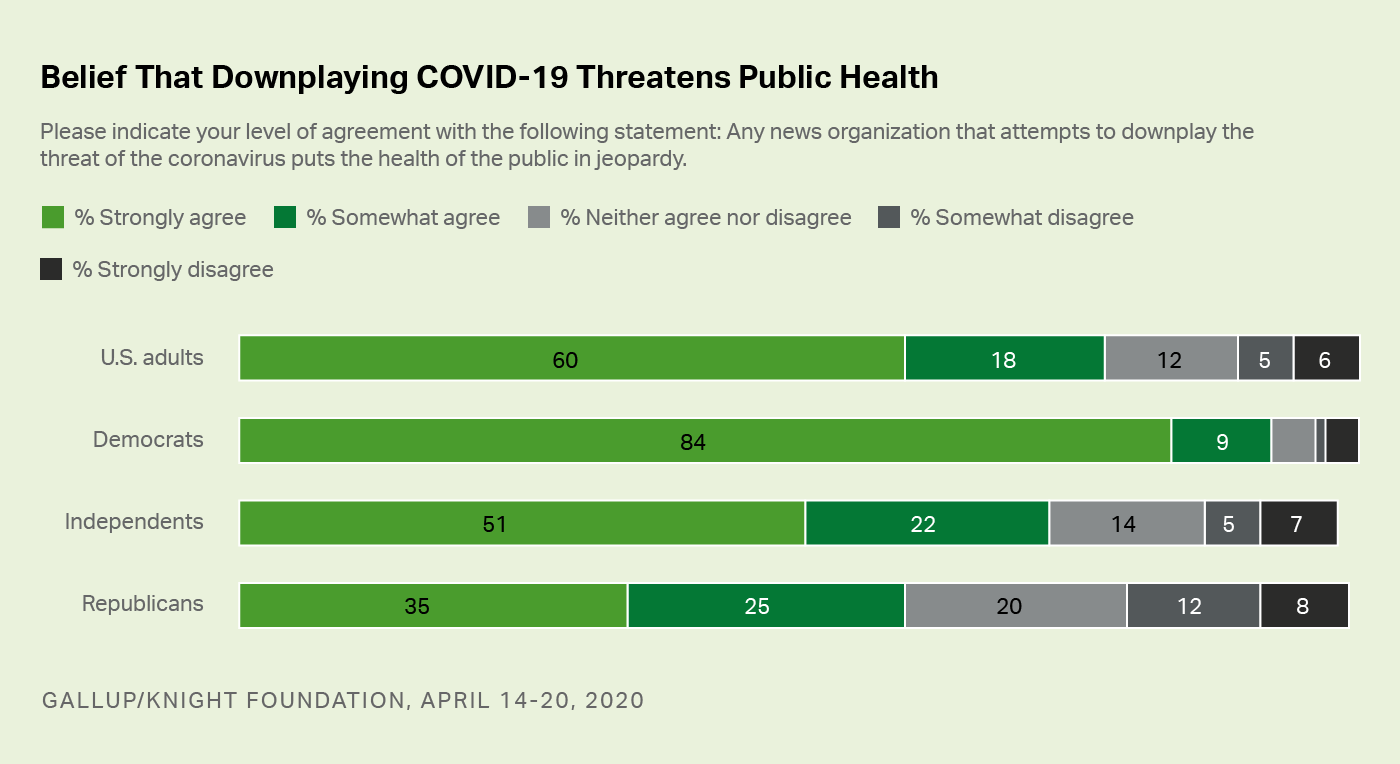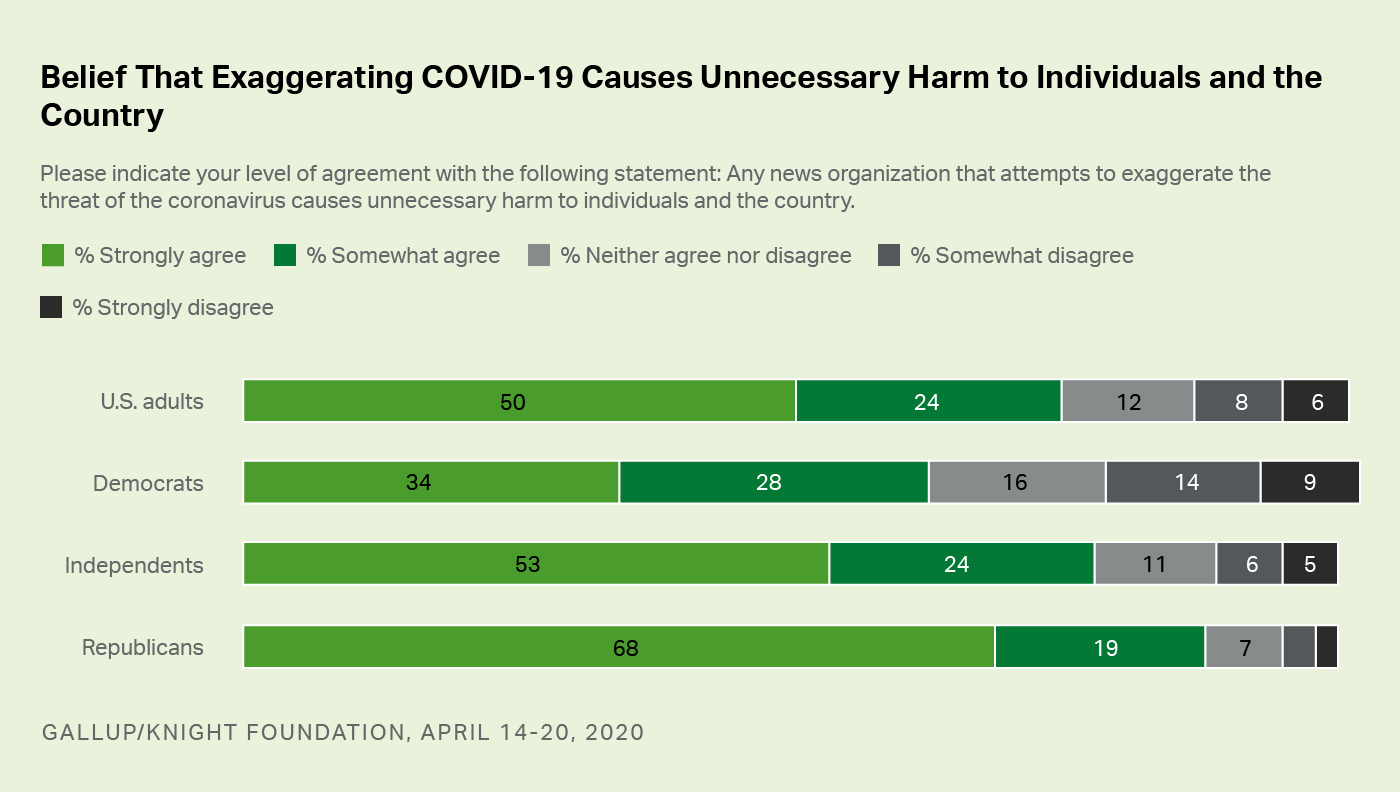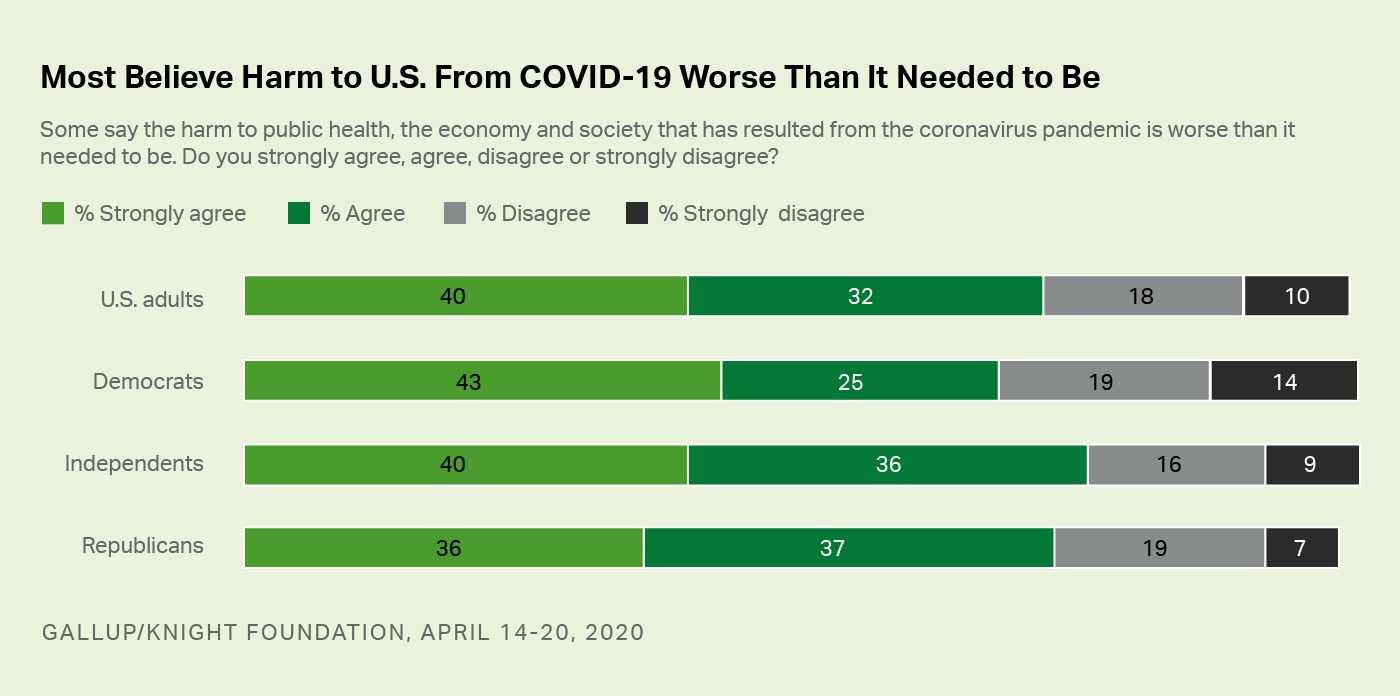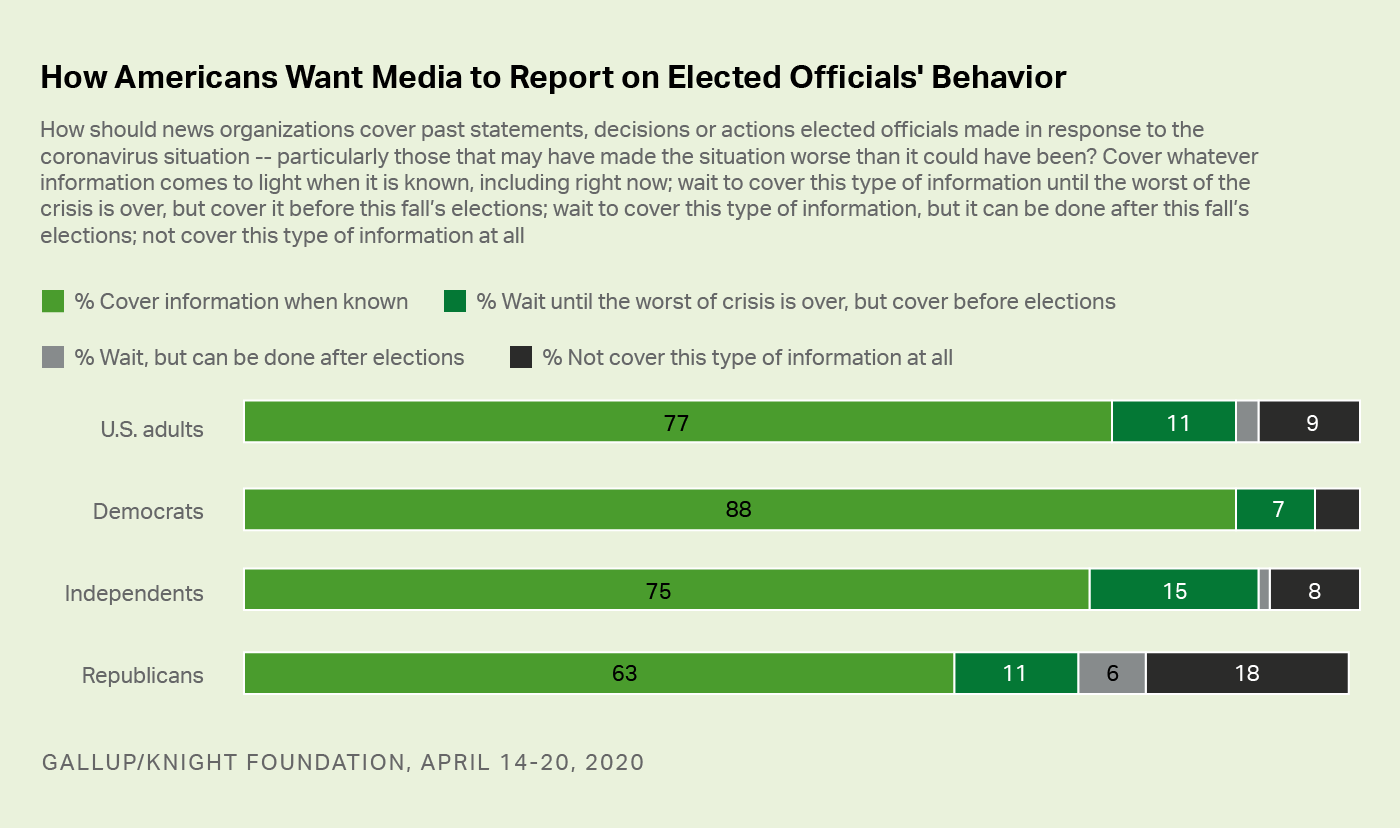The problem with being a free thinker is that it just takes so much more time and effort than just accepting whatever your told. Now, of course I’m saying this tongue-in-cheek, as the cost of not questioning much of what you hear is potentially much, much higher. But in an era when information is available at much higher volumes and speed than any of us can hope to consume, it’s a considerable sacrifice to weigh everything critically.
Take for example the reporting on a recent Gallup poll. I first learned of this poll via an article on a news and opinion site that trends conservative. The headline read thusly:
Gallup Poll Shows That No One Thinks the Media Is Doing a Good Job During the Pandemic
Rick Moran – PJMedia.com
The article cites another article from the Washington Examiner also reporting on the same Gallup Poll, so I went to read the Examiner article. Their headline?
Media botched the virus crisis and made it ‘worse’: Poll
Paul Bedard – WashingtonExaminer.com
And then I got a novel idea: Let’s go look at the poll itself! There were links, so…why not? Note we are now heading three layers deep. And how do they title the results of their poll?
Public Sees Harm in Exaggerating, Downplaying COVID-19 Threat
Jeffrey M. Jones and Zacc Ritter – Gallup.com
Following this trail of headlines just by themselves we see the effect of ye olde “Telephone Game.” We somehow went from “over- or under-playing the threat both believed to cause harm” to “The media is doing a poor job.”
But wait, we still haven’t even looked at the actual text of the articles yet. I’m going to ignore the first two and focus in on just the article written around the presentation of the data itself. Here’s their lede:
Media bias is a great concern for Americans, and the implications of such bias for society are magnified when the nation is in crisis, such as the current coronavirus pandemic. A new Gallup/Knight Foundation survey finds that a majority of Americans are concerned about biased news coverage of the coronavirus situation, including reporting that downplays the threat but also reporting that exaggerates it.
Democrats and Republicans diverge on whether exaggerating or downplaying the coronavirus threat is the greater risk. However, they generally agree that the crisis is worse than it needed to be, and that the news media should not wait for the crisis to ease before reporting on official actions that exacerbated the coronavirus situation.
It seems like a pretty good summary. Let’s look at the questions asked and the data obtained and tabulated:


This is as far as the first two articles really get. They focus in on the Republicans vs. Democrats angle, and also on the fact that the majority of all Americans find both exaggeration and down-playing to be harmful. But outside of the data itself, notice something a bit off? They’re asking what they essentially treat as inverse questions, but they word them slightly differently each time. When asking about down-playing they ask if it threatens public health. When they ask about exaggeration, they ask if it causes unnecessary harm to individuals and the country.
Why would they ask them differently? Wouldn’t it make the most sense to ask either “Any news organization that attempts to [down-play/exaggerate] the threat of the Coronavirus causes puts the health of the public in jeopardy” or “Any news organization that attempts to [down-play/exaggerate] the threat of the Coronavirus causes causes unnecessary harm to individuals and the country”? Wouldn’t that make the two questions equally weighted and inverse?
This may be displaying some of my own bias here, but it seems to me that framing the harm in terms of “public health” would tend to grab the interest of Democrats, while framing it in terms of individuals and the country would resonate more with Republicans. I don’t think it’s a coincidence that those groups do tend to rate the harm higher accordingly. Independents, predictably, seem to walk the middle of the road. Could it be this poll was designed to elicit a desired result outside of the stated objective?
But let’s look at the remaining questions and results:


The third question is fairly straightforward: Was the pandemic more harmful to the US than it needed to be? Interestingly here the independents agree most, but pretty much everyone agrees that it was. But what I don’t see here is any particular assignation of blame. We also don’t see any attempt to define “harm.” Was the harm in terms of public health, or to individuals and the country? Do people believe the unnecessary harm was caused by media reporting, let alone exaggeration or down-playing? That’s not part of the question. What about a lack of solid information, down-played or exaggerated? Also not addressed. One might infer the Democrats think the harm came from downplaying, while Republicans think it was from exaggeration, but causation was never addressed in this question. People simply think more harm was done than should have been.
The last question is just kinda of weird. It asks how people want the actions of public officials and the effects of their decisions to be reported on. Not surprisingly, as Donald Trump seems to be the main central figure under the microscope much of the time, a very high number of Democrats want them covered now. But also a high number of Republicans want coverage now, as well. But really, what value do we derive from this question? Evidently pretty much everyone wants the media to cover the actions of public officials and the results of those actions. There’s nothing at all here about whether or not we trust the media to cover it fairly, or even if we want it covered fairly. There’s really nothing here to support the Washington Examiner’s supposition that we believe the media botched their coverage. Same for PJ Media’s claim that the poll shows the media is not performing well in the crisis.
Okay, thanks for sticking with me this far. The bottom line here is regardless of what I think of the validity of the poll, the pollsters themselves did not attempt to read anything into the data that wasn’t supported by the data. They did a decent job. Less admirable was the news media’s interpretation thereof. Both headlines and articles try to get more out of the data than is really there. I’m not entirely sure about the Examiner’s leanings, but a quick online search suggests they lean right. And the right tends to be convinced that the media is biased left and/or doing a poor job of unbiased reporting. While it’s amusing that we have media claiming the media is doing a poor job, it seems evident they’re claiming it with very little substance to go on here.
But if we weren’t aware of their bias beforehand it would be easy to assume that the PJ Media article’s assessment is correct because it echoes the Washington Examiner’s assessment. And since PJ Media quotes from the the Examiner, they invite us to not look any further, not even to read the Examiner’s article. We have to dig down two levels to find that both media outlets are creating something out of nothing.
As much as I hate to say it, because I’m basically a lazy man, to be a true free thinker we have to do our homework. To do otherwise is to be misled. And the world needs more true free thinkers.
